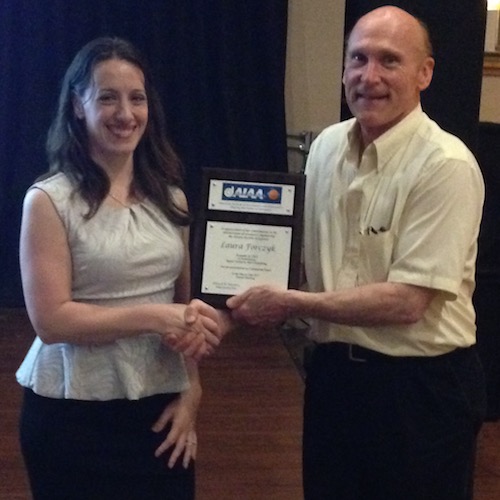At our March dinner meeting Laura Forczyk, founder of Astralytical, spoke about the topic of Millennials in the workforce. Laura is writing a book on this topic. Her presentation became a lively and wide-ranging discussion across the group. In a world changing as fast as ours, every generation has significantly different experiences from the one before. For example, our culture has moved from “write me” to “call me” to “e-mail me” to “text me.” Some differences:
Millennials tend to be more nomadic. They expect to have to job hop. They do not expect to be able to work for years for one company. Pensions will be a less-common job perk for them.
They are very socially engaged and are comfortable with diversity. The experience of making friends with someone unlike them — different color, age, religion, nationality, and the like — is a common experience. Millennials have often made friends with people online that they know only through avatars.
They are very comfortable with technology. They don’t remember transitioning from landlines to smart phones, or from vinyl to tape to cds to digital. They sometimes innocently forget other people do not share the same comfort level they do.
On the other hand, the Baby Boomer experience of taking something apart to see how it works may be less common with Millennials. One member wondered aloud if young people are comfortable making things and interacting with the physical world?
And Millennials are skeptical of capitalism. They are carrying a heavier debt load coming out of college than previous generations (house-sized debt rather than car-sized debt). A college degree is essential for them — fewer and fewer opportunities are available to people with only a high school education. And they don’t remember the boom time of the 1990s as clearly as they remember the dot com bubble burst and the housing market crisis.
Millennials are now the majority of the workforce. They are also the majority of the electorate (if they choose to vote).
Whether you are comfortable with it or not, Millennials are now coming into their own, economically and politically. Understanding differences in how this group may view the world can help you attract and retain the best of this new talent pool.


